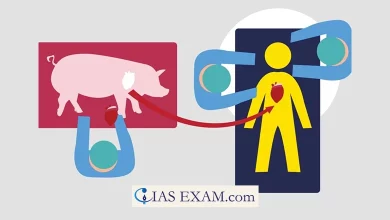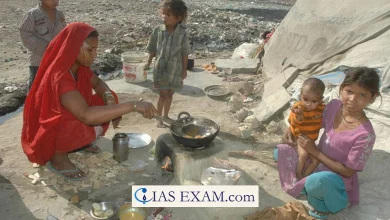
Context
According to the Food Waste Index Report 2024 households across the globe wasted over one billion food per day in 2022.
About Food Waste Index Report
- Started in 2021, the Food Waste Index measures food waste at retail and consumer level (households and food service).
- It is mutually authored by the United Nations Environment Programme (UNEP) and WRAP (Waste and Resources Action Programme), a U.K.-based non-profit organisation.
- Objective: To catalyze vital movement towards reducing food waste and accomplishing UN’s Sustainable Development Goal (SDG 12.3).
- SDG 12 seeks to “make certain sustainable consumption and production patterns.”
- Goal 12.3 requires cutting in half per capita global food waste at the retail and consumer level, and decreasing food losses alongside production and supply chains (along with post-harvest losses) by 2030.
- The file defines food waste as food and the associated inedible elements removed from the human food supply chain.
Key Highlights
-
- In 2022, the sector wasted 1.05 billion tonnes of food.
- This amounts to at least one fifth (19 percent) of food available to consumers being wasted, on the retail, food carrier, and household level.
- That is further to the thirteen percent of the arena’s food lost inside the supply chain, as envisioned by FAO, from post-harvest up to and excluding retail.
- Most of the sector’s food waste comes from households.
- Out of the entire food wasted in 2022, households had been liable for 631 million tonnes equal to 60 percent, the food provider region for 290 and the retail sector for 131.
- Households waste at least one billion food a day.
- In general, each one wastes 79 kg of food annually.
- The equivalent of at least one thousand million food of fit to be eaten food is being wasted in households worldwide every single day, the usage of a completely conservative assessment on the percentage of food waste that is fit to be eaten.
- Temperature and Food Waste Correlation:
-
-
- Hotter countries seem to have more food waste per capita in households, probably due to multiplied consumption of clean foods with extensive inedible parts and absence of robust cold chain.
-
- Urban-Rural Disparities:
-
-
- Middle-income countries show variations among urban and rural populations, with rural regions generally losing less.
- Possible motives encompass more diversion of food scraps to pets, animal feed, and domestic composting in rural regions.
- The file recommends focusing efforts to reinforce food waste reduction and circularity in towns.
-
- G20 Role in Food Waste Reduction:
-
- Only 4 G20 countries (Australia, Japan, UK, and USA) and the European Union have food waste estimates suitable for tracking development to 2030.
- An additional 2 G20 countries have appropriate household estimates (Canada, Saudi Arabia), with Brazil’s estimate predicted late 2024.
- Food waste must be addressed at each character and systemic ranges, inclusive of focused efforts in urban areas and international collaboration amongst nations and throughout supply chains.
United Nations Environment Programme
-
- The UNEP was established in 1972 at the United Nations Conference on the Human Environment, popularly known as the Stockholm Conference, because it was held in Stockholm, Sweden.
- Objective:
-
-
- To provide management and inspire partnership in being concerned for the environment by inspiring, informing, and enabling countries and peoples to improve their quality of life without compromising that of future generations.
- It makes use of its expertise to bolster environmental requirements and practices whilst helping put into effect environmental obligations at the country, regional and international tiers.
-
- Six Areas of Concentration
-
-
- Climate Change
- Post-Conflict and Disaster Management
- Ecosystem Management
- Environmental Governance
- Harmful Substances – UNEP strives to minimise the effect of dangerous substances and hazardous waste on the environment and people.
- Resource Efficiency/Sustainable Consumption and Production
-
- Governing Body
-
- The UN Environment Assembly is the governing body of the UNEP.
- It was created in 2012 to update the governing council.
- It currently has 193 contributors and meets every two years.
- Headquarters: Nairobi, Kenya
Source: The Hindu
UPSC Mains Practice Question
Q.A huge amount of food produced annually goes unconsumed and turns into waste. Suggest measures to prevent food walevel in India. (250 words)





.png)



